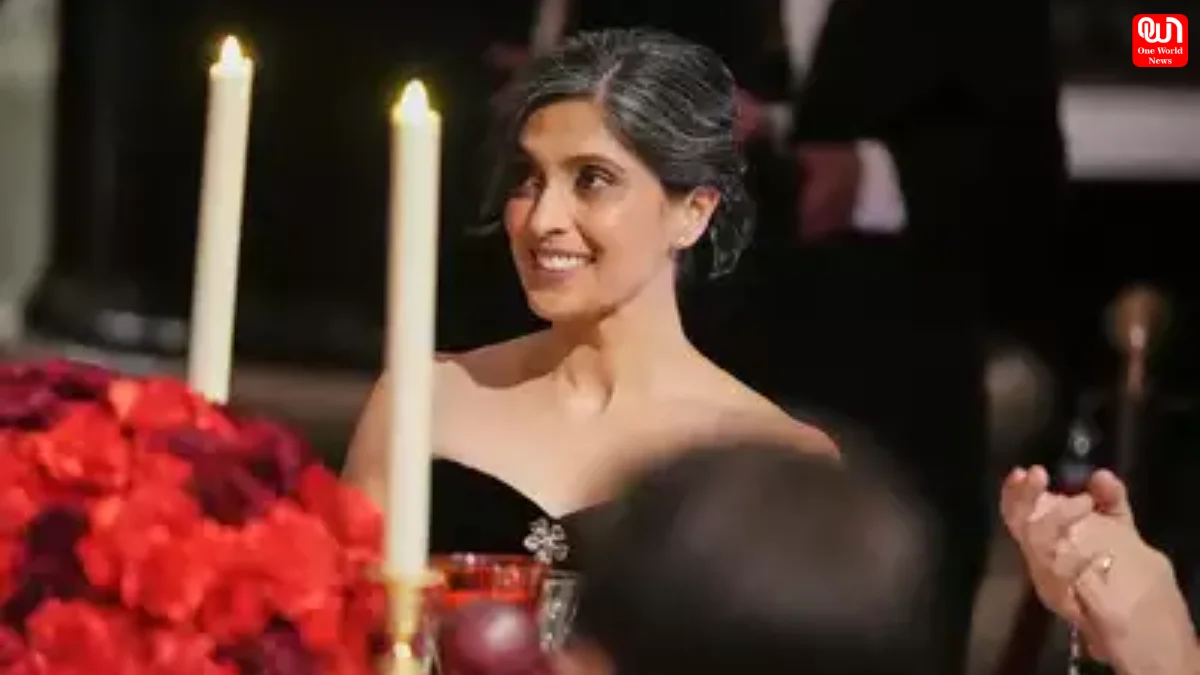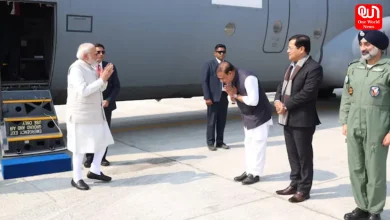Could Usha Vance Face Citizenship Issues Under Trump’s Proposed Birthright Citizenship Order?
Trump's proposed end to birthright citizenship sparks debates, impacts Indian diaspora, and raises questions about Usha Vance's citizenship status.
Could Usha Vance’s Citizenship Be Impacted by Trump’s Proposed Changes to Birthright Citizenship Laws?
The threat of the end to birthright citizenship for children born to certain non-citizens in the United States by President Donald Trump brought forth debates over immigration and citizenship rights. All this brought speculations over the repute of famous persons such as Vice President JD Vance’s wife Usha Vance, who will not be spared from questioning her citizenship.
Born in the United States to Indian immigrants Krish and Lakshmi Chilukuri, who migrated from Andhra Pradesh in the 1980s, Usha Vance’s parents both had distinguished careers of their own. Krish was an aerospace engineer and lecturer at San Diego State University, while Lakshmi was a biologist and provost at the University of California, San Diego. Their date of gaining US citizenship has not yet been established, making people wonder if Trump’s plan might affect their daughter.
Read more: PM Modi Highlights Collaboration and Innovation in Metro Development Across Indian Cities
Does Usha Vance’s Citizenship Hang in the Balance?
In cases of satisfying the pertinent criteria, as mentioned in the draft executive order that Trump plans to introduce, the mother shall be deprived of conferring birthright citizenship. That is to say, the mother will either be an illegal immigrant, or she had only been here on one of the various legal visas meant for studying, visiting the United States on tourism, or work visas. Conversely, the father is neither a U.S. citizen nor lawful permanent resident of the United States at the time.
However, a crucial clause clarifies that the policy would only apply to individuals born in the United States after 30 days from the order’s implementation. Since Usha Vance was born decades earlier, her citizenship status would remain unaffected under the proposed framework. Nonetheless, the controversy highlights the broader uncertainties and anxieties surrounding the policy.
Impact on the Indian-American Community
It has sent many alarm bells ringing within the Indian-American community, now pursuing this ever so complicated U.S. immigration system. Children born of temporary visa-holding parents, H-1B, H-4, or F-1, would no longer fall under automatic citizenship if their parents were not green-card holders or U.S. citizens. The change has been felt among more than one million Indian immigrants in the United States, who have employment-based green cards pending with many facing decades-long backlogs.
Families already grappling with immigration hurdles now face added uncertainties about their children’s futures. Critics argue that the policy could create a stateless population of children and disproportionately affect high-skilled immigrant families contributing significantly to the U.S. economy.
Although the proposed order is yet to be finalized and enacted, it speaks to the changing character of U.S. immigration policy and its rippling effects throughout immigrant communities. For now, people like Usha Vance remain untouched, those born before the order’s passage, but a larger debate concerning citizenship and belonging informs public discourse.
We’re now on WhatsApp. Click to join.
Like this post?
Register at One World News to never miss out on videos, celeb interviews, and best reads.







